5 Dangerous Technology Trends for
👇 Take this lesson with you! 👇
In an increasingly digital world, technology plays a significant role in how we learn. Many new technologies are promising to revolutionise your language learning. But how effective are they really?
Sure, technology can enhance learning, but it can also pose potential problems.
Here, I am going to look at 5 technology trends for English students, and show you their dangers or limitations, as well as highlight their benefits. This will help you make informed decisions about how to use them to improve your English.
Table of Contents
Social media - short form content
Social media platforms like Instagram, TikTok, Facebook and YouTube have risen in popularity as tools for learning English. Many now focus on short videos lasting anywhere from 15 seconds to 1 to 2 minutes. Such content is short, engaging, and plentiful.
Dangers
One danger is that sometimes teachers on social media may focus more on views and likes, rather than teaching. This may mean the content is not always what you need, and sometimes accuracy is sacrificed for speed and fun.
Coupled with the fact that anyone can post a video to teach English, you are never 100% sure of what’s correct and useful. My experience is also that many English teaching videos focus on teaching vocabulary, but a lack of context and depth might also lead to incorrect usage and misunderstandings.
The Good
Despite these challenges, there are reputable teachers on social media who provide informative, context-rich lessons that make learning English enjoyable. I’d also say, most teachers can make learning more engaging and relatable via short videos.
I think the key is to be discerning and use social media as a supplementary tool. Seek out teachers who prioritise quality teaching and provide context in their videos.
In general, consider these platforms a form of ‘edutainment’ ( a combination of ‘education’ and ‘entertainment’) that you will inevitably need to substitute with deeper study.

Flashcard apps
The second technology trend for English students I want to look at is Flashcard apps.
Some well-known ones like Anki, Quizlet, Memrise, and Duo cards have proven to be useful for vocabulary building, but they come with their own set of challenges.
I actually love all of the above apps and would recommend them, but generally with flashcard apps there are some dangers or limitations we need to be aware of.
Dangers
A lack of context may lead to a superficial understanding of words, which is fine at beginner level, but can offer challenges for higher level students. It is more challenging to learn advanced and abstract vocabulary via a flashcard, again, vital context that supports meaning may be missing.
What’s more, my feeling is some of these apps have an overemphasis on gamification, including leaderboards, rewards and flashing lights.
Making learning into a game can initially be attractive but can soon become distracting and may even reduce the effectiveness of your learning or lower motivation.
The Good
The strength of these apps lies in teaching words that have a clear and visual meaning. So, they are great for beginner level vocabulary. In addition, research shows that ‘spaced repetition,’ a technique these apps often employ, is very effective for memory retention.
What’s more, these apps are often easy to use and they are something you can dip into when you have time to kill, as the app sits on your phone.
Overall, I’d say, these apps are supplementary tools, not comprehensive learning solutions. Be aware of the potential limitations and aim to apply the vocabulary you learn in real-world contexts, so that you can really learn the words deeply and not forget them tomorrow!
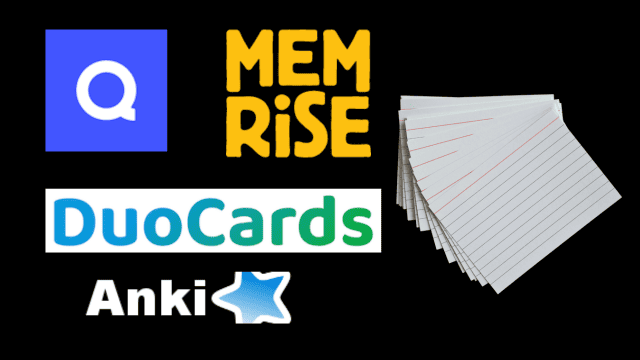
AI and pronunciation apps
Probably the technology trend that is most likely to impact English students most, is AI-powered language learning and pronunciation apps. They are are cropping up everywhere. Some of there more well-known ones include Babbel, Rosetta Stone and Busuu.
When it comes to pronunciation apps, ELSA Speak is one of the best I have seen.
Dangers
As many new companies are jumping on the ‘AI bandwagon’, not all of them offer a high quality experience with their products. Sometimes, it feels like technology is driving the product, rather than combination of technology and pedagogy being used to develop the product.
Another downside to be aware of is that while AI can provide personalised feedback, it can also sometimes provide inaccurate feedback, or feedback that is not always relevant to the student. AI is improving but it is still not perfect. So, as students, we sometimes need to take feedback given with a pinch of salt.
The other danger is that students may feel working with an AI-powered language learning and pronunciation apps is enough for them to improve their English. This is usually not the case, it works best when integrated with a wider range of activities where you also practice your language with other people.
The Good
AI can save learners time and make lessons fun. It can adapt to your level and pace, making your learning experience more personalised. Whilst it may not be perfect, this personalised learning is what most students crave and it can certainly enhance learning.
AI is also getting more and more powerful, and the technology behind voice-recognition software and AI-powered apps will definitely bring even bigger benefits to students in future.
So, use these apps as a supplement to your studies, not as a substitute for human interaction. Remember, language is about communication; it’s important to practice with real people too.

Teacher platforms
Dangers
The quality of teachers can vary significantly. Not all platforms insist on qualified teachers and aside initial vetting there is usually little, if any, control and monitoring of teacher performance.
Even though these platforms will have some great teachers, you may spend a lot of time and money looking for the ‘right’ teacher for you. Finding a teacher who matches your needs, personality and learning style, is not always easy.
Given you are also usually paying for one-on-one time with a teacher, it can also be relatively more expensive than other options.
The Good
These platforms provide unprecedented access to native-speaker teachers, teachers you may otherwise have no chance of meeting. They offer great flexibility; you can choose the teacher you want, the day, the time and even the content of the class. Some platforms also offer group classes, which can lessen the intensity of one-on-one lessons and provide a more natural, social learning environment.
So, I advise you to choose your platform and teacher carefully, taking into account their qualifications, teaching style, and your budget. Teacher reviews by other students may help guide your choice.
A platform like Immigo, with its cohort-based learning, might be a good choice for a balanced and collaborative learning experience.

Online courses
One of the biggest technological trends for English students, and indeed for anyone wanting to learn anything, is online courses. Nowadays you can find an online course for just about anything.
You can find them on individual websites of teachers you know and trust, or in online market places like Udemy.
There are also Massive Open Online Courses (MOOCs), like Coursera and FutureLearn, that collect a range of lectures and courses from the best universities in the world and then offer them as free courses to students worldwide.
Dangers
Whilst there is a wide range of online courses on offer, the quality can vary widely. Anyone can publish an online course, so you need to be careful when choosing which one to take. Reviews by other students can help identify if a course is suitable for you.
Another danger or limitation is you may get a limited learning experience from an online course, depending on the nature of the subject, and on your goals. Simple knowledge transfer works well in an online course, but for more complex learning, such as learning a language, you may not develop all the skills you need.
Limited interaction and engagement are also common issues. A large number of online courses are ‘self-access’ so many times the student signs up and is left alone to make their way through the course. This does not suit everybody. Some students want and need hands-on support and interaction with the teacher and other students.
It is usually a lack of motivation or engagement that causes people to drop out or given up an online course. Course completion rates are often extremely low for online courses, ranging from 5% to 15%, although it does depend on the kind of course and the sector.
The Good
Despite these challenges, some research shows that online learners can perform slightly better than those in traditional classrooms.
Some of the suggested reasons are lack of peer pressure, (e.g. no students laughing at your bad pronunciation), and lack of real-time pressure, (e.g. no teacher demanding an instant answer). The fact you can study at your own pace can also be hugely beneficial, not only for learning but also for time management.
For language learners focusing on developing their speaking skills, online courses can give you unlimited input and output which is essential to language learning. So, you can replay videos and audios as much as you want.
Also, the language model doesn’t disappear like in a face to face classroom. You can stop and pause a video or audio, and repeat language as many times as you need, until you get it right. It’s a perfect sandpit to develop your basic speaking skills. Of course, more advanced skills, including fluency will need to be developed by speaking with other people.
As with teacher platforms, online courses may give you instant access to world class course, teachers and learning experiences. Something you just may not be able to get in the place where you live. For some people, well-designed online courses have also pushed them to develop their digital literacy and improve their digital skills, alongside other ’21st century skills’, a useful side benefit in a world where technology is everywhere.
So, whilst online courses provide unlimited access to learning materials, allow for self-paced learning, and may potentially promote 21st-century skills like digital literacy, I think it’s important to remember that successful online learning requires motivation and dedication.

Conclusion
Technology is playing a ever bigger role in the field of language learning.
Rather than accepting it blindly and jumping on every new, shiny app, we should be aware of the limitations of various kinds of technology and learn how best to use them to enhance our learning. Technology in itself is neither good nor bad. It is how we use it that makes it good or bad.
I think when it comes to language learning, the key lies in understanding that while technology can provide valuable tools for learning, it should be complemented with real-world interaction and practice.
Finally, if you’re looking for a safe and exciting platform to learn English, check out Immigo. With its innovative approach to learning, you may find the safe and suitable environment you are looking for to learn English.
If you are preparing for IELTS and want to develop your speaking skills so you can face the examiner with confidence and ace the IELTS test, check out my online course below.
Improve your Speaking Skills with this Free Course
Crack IELTS Speaking Part 1
Learn to Speak with Confidence in Part 1 of Your IELTS Test!
⭐️⭐️⭐️⭐️⭐️
‘It’s such a great course. I’ve learned so many usages for speaking part 1.’
Zu Htet

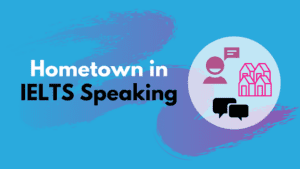
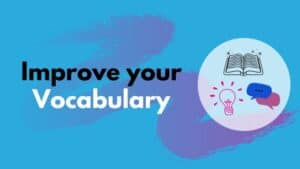
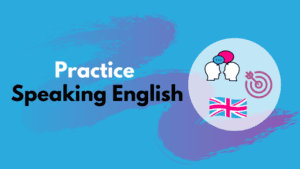

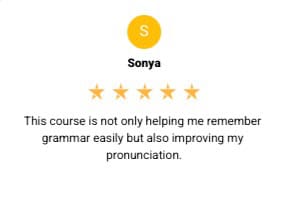
3 thoughts on “5 Dangerous Technology Trends for English Students”
Thanks for the instructive video. Alas, although Chelsea looks very sympathetic, “Immigo” seems quite shady, at best, to me… Their website doesn’t allow you to contact them, there is no legal information about the company (VAT number, location, NAMES (only first names) of the founders etc…) anywhere. I’ve completed a profile without paying subscription, and I can’t find any possibility to cancel ou delete my account. In fact I have no access at all at the informations I’ve provided (at least I didn’t put my credit card credentials). Plus, the brand name “IMMIGO” is confusing (at purpose?) : other companies in the field of immigration assistance have the same denomination.
Hi Anthony, I appreciate you for taking time to watch this video and giving us such constructive feedback. I have relayed these over to my Co-founder Ryan so we can prioritize this to get this fixed. I completely agree with you it’s very important for us to have a way for potential students to communicate with you, learn more about our credibility/track record, and for students to feel safe about their information (e.g. account deletion, etc.)
And re: our name Immigo – most of our students come from Latin America and speaks Spanish. Half of our students are immigrants or people who wish to immigrate! We wanted to be the safe space for everyone to practice their English hence the name Immigrant + Amigo (friend in Spanish) = Immigo.
Again, thank you so much for these insights to help us become a better company. If you let me know first 3 letters of your email address you had created an account with us, let me know and I’ll reach out to give you a free class as a thank you! 🙂
Pingback: 5 harmful know-how traits for English college students - Meyild01